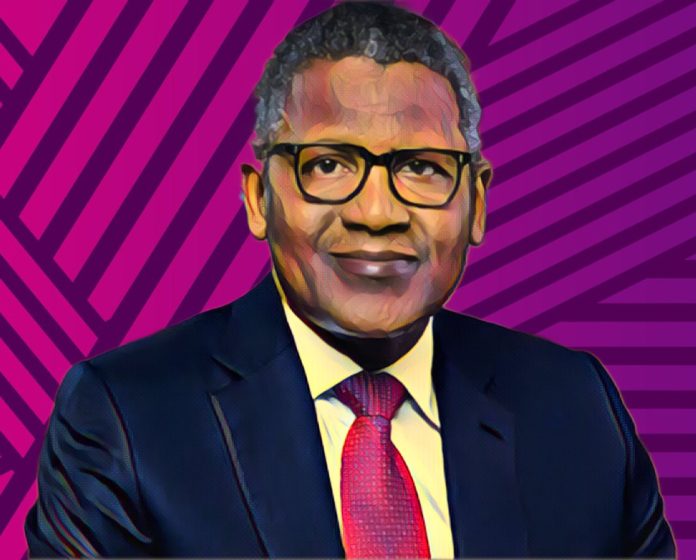KEY POINTS
- Dangote refinery and Mitsui strike an agreement.
- The partnership’s goals are polymers, fertilizers, and resins.
- Venture may also cut Africa’s $15 billion import cost in half.
The Dangote refinery has signed a partnership with a Japanese company to make petrochemicals in Nigeria.
Aliko Dangote’s refinery works with Mitsui Chemicals to make petrochemicals in Nigeria.
The Dangote Petroleum Refinery, which is the largest in Africa and owned by the continent’s richest man, Aliko Dangote, has teamed up with Japan’s Mitsui Chemicals to make petrochemicals in Nigeria. This is a new effort to make Africa’s largest industrial complex more diverse.
Furthermore the memorandum of understanding (MOU) that was signed at the Tokyo International Conference on African Development will let the partners make fertilizers and resins using feedstock from Dangote’s $20 billion, 650,000 barrel per day refinery in Lagos. Mitsui, which runs resin and PET businesses all over Asia, will share its technology and know-how.
A strategic shift toward higher-value goods
The move lets Dangote penetrate deeper into the petrochemical chain, where it can turn crude oil into plastics, packaging materials, and fertilizers for farming. Mitsui said the goal of the partnership was to “strengthen the living foundations and develop regional industries in African countries, including Nigeria.”
The refinery, which opened in January 2024, is already the main source of energy for Africa. While its petrochemicals factory next door started making 900,000 mt/year of polypropylene in March 2025, which replaced 250,000 mt/year of Nigerian imports.
In May, Dangote also inked an exclusive export arrangement with Vinmar, a global distributor, to sell its polymers. This also gave the company an immediate way to sell its products around the world.
Financing and growth momentum
The alliance comes at a time when Dangote is growing quickly. The organization hired David Bird, a former Shell executive, as the first CEO of its refining and petrochemicals division earlier this month.
This was a change from building to running the business. The African Export-Import Bank led a $4 billion loan to the corporation to increase refining capacity to 700,000 barrels per day and develop regional storage centers, starting with Namibia.
The Mitsui joint venture avoids problems with foreign exchange and also logistics that have long plagued standalone petrochemical projects in West Africa by getting feedstock straight from its refinery.
Importance on a regional and global scale
Nigeria depends on a lot of imported resins and fertilizers, which costs the country money and makes it more expensive for industries to get the materials they need. If Africa could get its own plastics and chemicals, it might save $15 billion a year on imports and create new jobs in packaging, consumer products, and agriculture.
The tie-up shows how things are changing around the world: slower demand from Asia has freed up Japanese money and knowledge, and Africa’s growing population and industrialization are creating new demand. In addition for Mitsui, this project is its first big step into the chemicals sector in sub-Saharan Africa.
The bigger picture for Dangote
The refinery started phased operations in 2024 and has since increased production from diesel and naphtha to gasoline and polymers, reaching 500,000 bpd by January 2025. Moreover exports are already going to Europe, the U.S., and West Africa. By 2026, Dangote expects his group to make $30 billion a year from fuels, fertilizers, and petrochemicals.
Aliko Dangote, the richest man in Africa with a net worth of $28.7 billion, has further called the complex a key part of Africa’s energy and economic independence.
The deal also gives Mitsui a key partner in Africa. The proposal also gives Nigeria an opportunity to go from being a commodity exporter to an industrial producer, which would change the petrochemical landscape on the continent.



